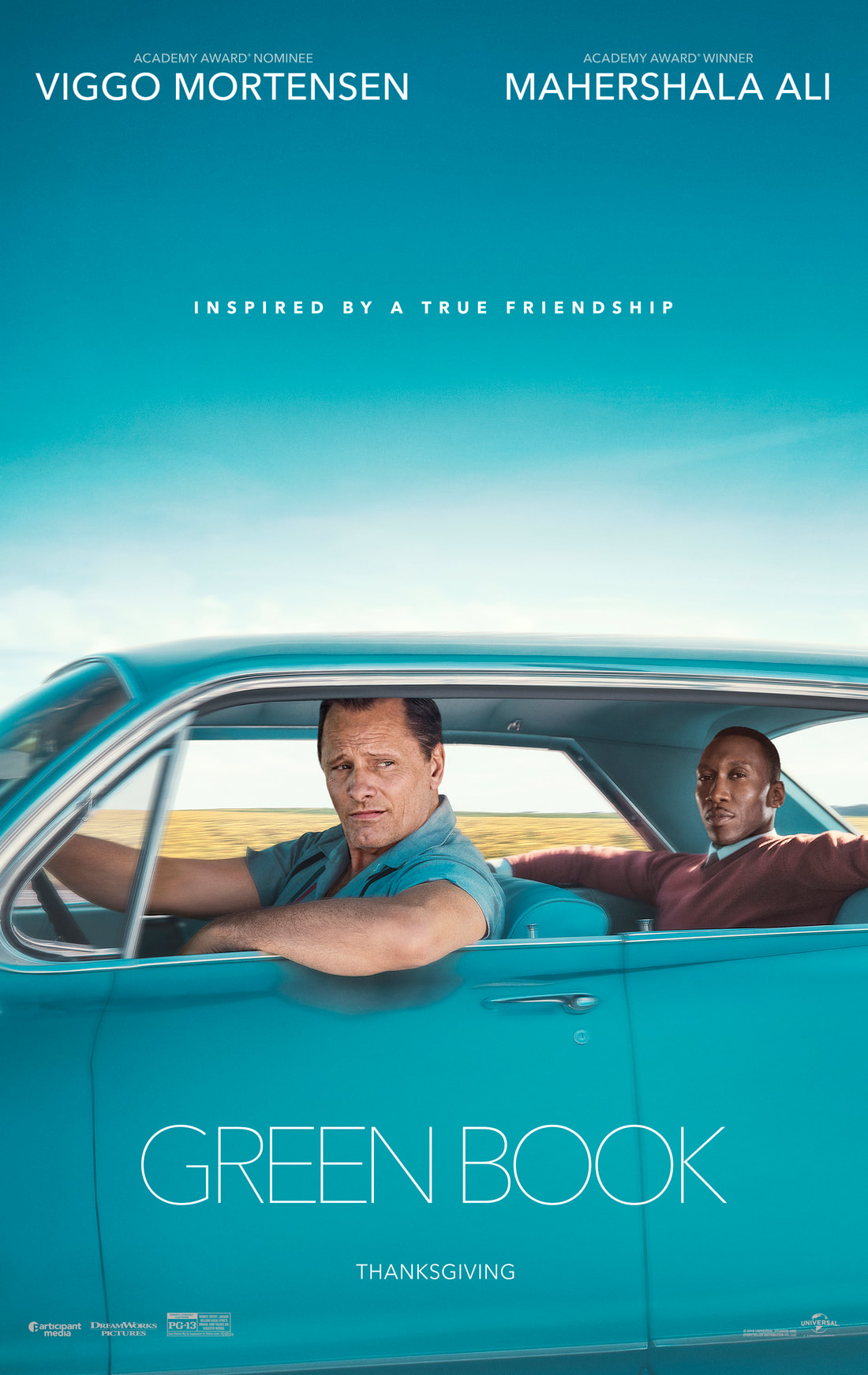Genre: Drama, Historical, Biopic |
Looking back at this time in history is sobering and painful, but there are some fantastic comedy moments in the seriousness. Shirley's refined, posher life experiences are contrasted with Lip's rough, working class existence. Likewise, Shirley's desire for acceptance and dignity are at odds with Lip's punch-ready background and refusal to budge in his otherness: When Doctor Shirley suggests he uses the easier to pronounce "Valle", Lip tells him that people will call him Vallelonga or nothing at all; while Shirley refuses to stoop to the level that those who abuse him do, Lip is quick to threaten those who are racist to him and eventually to those who are racist to Shirley. This is a time in history where, while Lip is visually white, his Italian name, language and social standing are seen as non-white, "half-n****r" as one police officer says.
While we are confronted with the reality of being a black man in this period, the violence is mostly off camera and the n word only rears its ugly head that one time. A serious topic, this film does present it without being overbearing. Homophobia is also touched on, and in a lovely moment Tony Lip says he's worked at night clubs in New York and that it's nothing new to him. It's over and done with, and the same gender hookup is not treated as an issue or a character defining moment.
Set all across the south of the USA, there are some great ways to show distance and place. Driving scenes feel natural and the amount of scenes featuring two actors in a small car don't feel overused or limited. The use of maps and place name titles give a sense of movement and scale without really making the actual locations the focus. With the other two members of Shirley's trio and Mrs Vallelonga giving outside perspectives and subplots, this is a show of talent in telling the tale of the main pair's journey. With great luck for a true story, their physical journey is the partner to their metaphorical journey to become friends.
Doctor Shirley learns to relax in himself and let himself be 'black' - he goes from uncomfortable socialising with the other black travellers, who are working people, to enjoying a more jazzy jam session in a black bar. More drastic, of course, is Tony Lip's change. From the man who binned two glasses because black men had drank from them, getting to know Doctor Shirley and seeing first hand how the man is treated, he becomes a different man. Relaxed in otherwise all-black spaces, he even ends the film inviting Shirley to his home to meet his still racist family. To think that this is a real story, and that this was a period of two months? The value of this film is amazing. While there are some exposition-heavy, Oscar-bait emotional moments, the whole film is a worthwhile and enjoyable two hours.
While we are confronted with the reality of being a black man in this period, the violence is mostly off camera and the n word only rears its ugly head that one time. A serious topic, this film does present it without being overbearing. Homophobia is also touched on, and in a lovely moment Tony Lip says he's worked at night clubs in New York and that it's nothing new to him. It's over and done with, and the same gender hookup is not treated as an issue or a character defining moment.
Set all across the south of the USA, there are some great ways to show distance and place. Driving scenes feel natural and the amount of scenes featuring two actors in a small car don't feel overused or limited. The use of maps and place name titles give a sense of movement and scale without really making the actual locations the focus. With the other two members of Shirley's trio and Mrs Vallelonga giving outside perspectives and subplots, this is a show of talent in telling the tale of the main pair's journey. With great luck for a true story, their physical journey is the partner to their metaphorical journey to become friends.
Doctor Shirley learns to relax in himself and let himself be 'black' - he goes from uncomfortable socialising with the other black travellers, who are working people, to enjoying a more jazzy jam session in a black bar. More drastic, of course, is Tony Lip's change. From the man who binned two glasses because black men had drank from them, getting to know Doctor Shirley and seeing first hand how the man is treated, he becomes a different man. Relaxed in otherwise all-black spaces, he even ends the film inviting Shirley to his home to meet his still racist family. To think that this is a real story, and that this was a period of two months? The value of this film is amazing. While there are some exposition-heavy, Oscar-bait emotional moments, the whole film is a worthwhile and enjoyable two hours.

